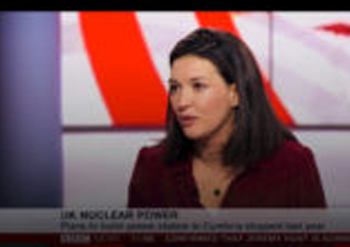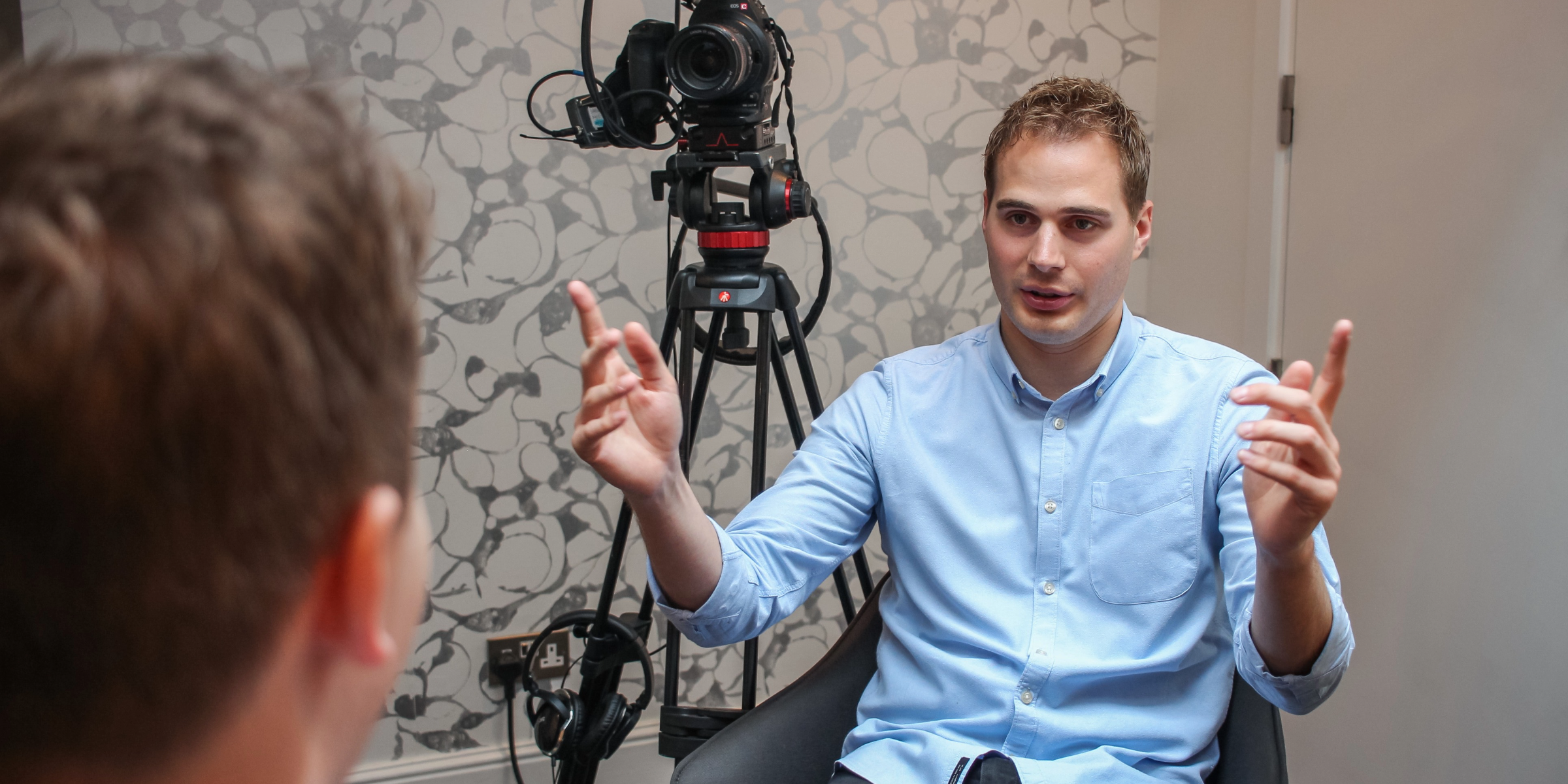The latest guest in our on-going series of Small Talks was BBC Business Correspondent Katie Prescott. Here is a summing up of what she said, as heard by Shout! Communications’ Keren Haynes.
The BBC’s Business Correspondent Katie Prescott is a busy woman. After stints working as first a producer, then a presenter, of the business slots on Radio 4’s Today programme, she now reports across radio and television national news programmes for the corporation. With business news being so central to the current news agenda it means there’s no such thing as a quiet day. From furlough schemes and employment figures, to energy prices and the global efforts to reduce carbon emissions, business news has rarely seemed as significant as it does today.
In the beginning….
For Katie, it all began with a dragon. As a new graduate Katie had begun her career working at a start-up magazine in London’s Brick Lane. It was a stint which included an interview with BBC Dragons’ Den investor Peter Jones – and a job offer from him. Three years as his assistant, working alongside some of the investments he made via the Dragons’ Den programme, including Levi Roots’ Reggae Reggae sauce, and her interest in business news was ignited. One MA in journalism later and she joined the BBC as a junior researcher.
Career highlights
Asked during our Small Talk to pick a career highlight and she struggles. There has been, she says, not a dull moment in the 11 years she’s been at the BBC. Often bad news equates to a good story, in the eyes of a journalist, and the pickings in recent years have been good. Most recently the furlough scheme that was born of the pandemic, resulted in a plethora of meaty business stories. For the BBC, business news looks at the bigger picture, but at its heart is what the story means to real people. The current on-going story about energy prices is typical of that and the question is: what sort of effect the surge in costs will have on individuals as well as companies.
The pandemic
The pandemic has not only altered the news agenda, it’s changed the way news works. Nothing has completely returned to whatever normal was and Katie says studio guests are still very much the exception rather than the rule. That means Zoom and FaceTime interviews are here to stay. The BBC used to have, Katie explained, a very high bar when it came to technical standards; phone interviews were a complete no unless the guest was extremely remarkable and hard to reach. The pandemic however has resulted in the convenience of interviews conducted over the internet becoming more important than the odd crackle or broken connection.
Real stories from real people
That said, when Katie is sent to report on issues, being in a place and talking to people face to face is key to getting to the root of a story. For example, she’s been to Bristol ahead of the Autumn statement, to speak to businesses and organisations about the challenges they currently face – and what they want the government to do about it. Katie says you learn more on these trips than any other way. It’s no surprise then to hear that case studies will always be in demand. This is the content that can bring a story to life and, crucially, make it relevant to an audience.
Getting the spotlight on your story
The best way to attract Katie’s attention is a story where you can explain why it matters. This should be accompanied with details of a spokesperson who is close to the story. They need, she says, to speak in a knowledgeable and interesting way, without using industry jargon.
Being on top of the news agenda also really helps. Inflation figures, the autumn statement, interest rates….there are many news stories that we know about in advance. The question is how to match what’s coming up with whatever brand we’re trying to promote.
If you’ve offered Katie a case study, or expert spokesperson, and not heard back, don’t give up hope completely. It sounds like she’s extremely organised and will have squirreled your email away, just in case it’s useful another time. Inundated is an understatement: Katie gets around a thousand emails a day. A word of warning, however, don’t think of phoning instead. This is not someone who works a 9 to 5 day, then clocks off. Broadcast journalism shifts are often early starts or late finishes and you never know when she might be asleep!
For more information about broadcast media relations, and how we at Shout! Communications can support you, click here: https://shoutcommunications.co.uk/what-we-do/broadcast-media-relations/



